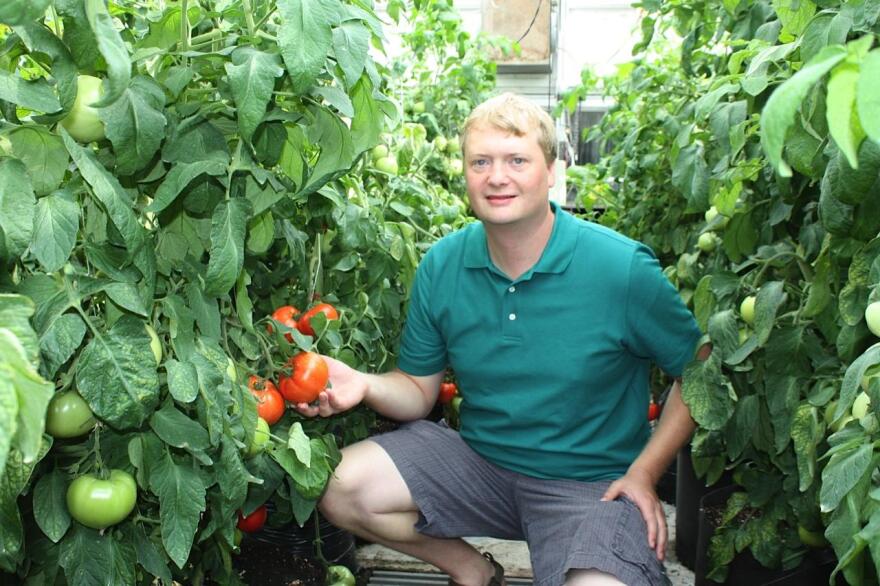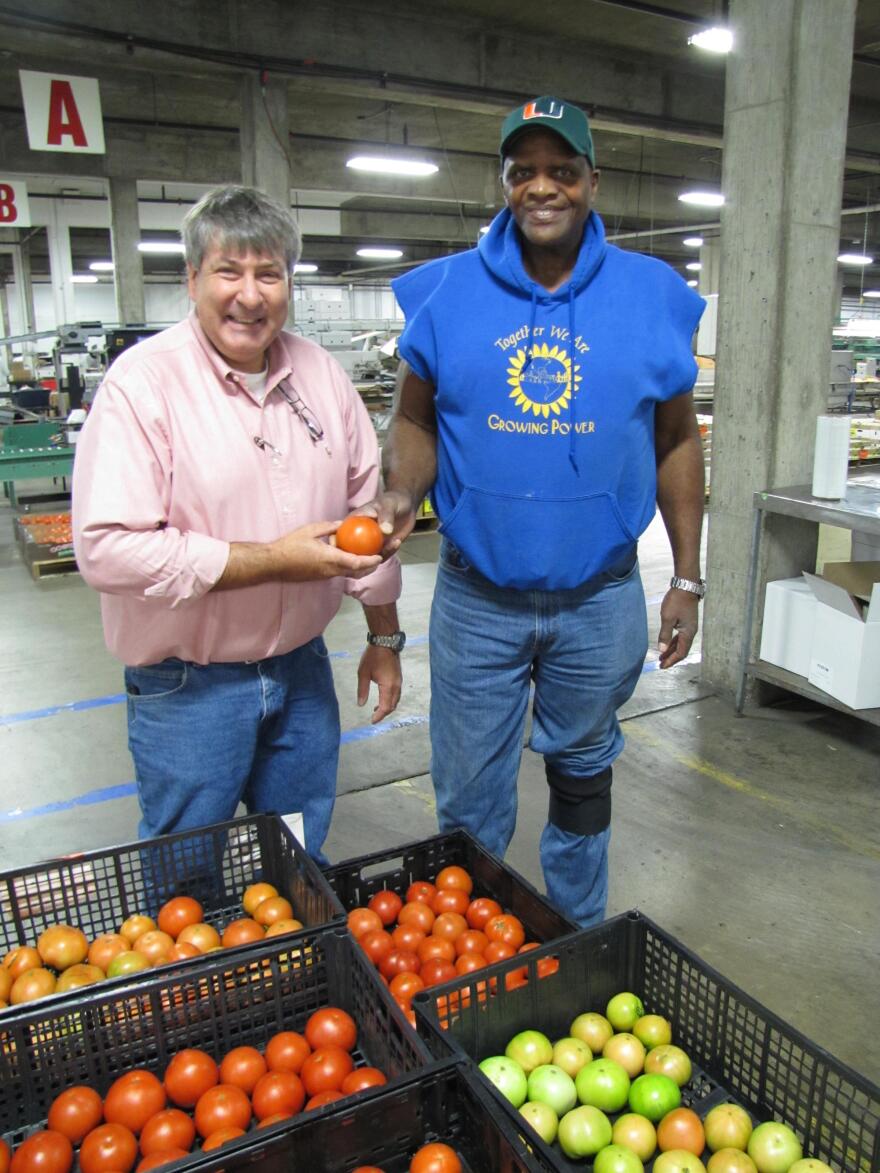
Glendale-based produce wholesaler, Maglio Companies, has teamed up withGrowing Power for an experiment.
This summer, the Milwaukee-based national leader in urban farming installed eleven hoop houses next to Maglio’s headquarters, just off I-43, to grow some of its own food. Inside, tomatoes grow in lush profusion.
Company president Sam Maglio admires the crop, but admits lots of water and labor went into it. “We have talked to certain customers about how special these are, and will command a little higher price. It costs a little more to grow, and we’re not machine harvesting, it’s hand harvested,” he says.

To Sam Maglio, quality means everything. “(At Maglio's plant), cameras looking at each tomato, looking at the color, takes 15 or so pictures of each tomato. It goes to the scale, it gets weighed and now the computer knows what color and size it is and it’s distributed out to a packing station based on size and color,” he says. That produce is then delivered to customers in states across the Midwest.
The company purchases most of its produce from far-flung growers - from California to Mexico to Florida, but now can tout Growing Power's very locally grown tomatoes.
Cornell University associate professor, Neil Mattson, says what’s happening at Maglio is part of the new continuum of growing food. It no longer all happens in the field.

“A simple hoop house - an unheated structure without supplemental light - we can grow about three times as many tomatoes as we can in outdoor field production," Mattson says. "If we go to a full on greenhouse with supplemental lights and excellent controls grown year round, we can grow in some cases 10 to 20 times more than we can in a field of the same size."
Mattson forecasts more growers going high-tech.
BrightFarms' Paul Lightfoot already has created two sophisticated greenhouses. His company is based in New York State. Soon Lightfoot will break ground on a third ginormous greenhouse system just outside of Chicago, with plans to pump fresh produce into a local chain of supermarkets.

“We’re going to be keeping it warm all winter with waste heat. We’re growing on floating boards that float on ponds of water. And it’s got a fair amount of high tech automation doing things like seeding and harvesting…. that enable to grow at a commercial scale and still do it consistently, reliably and profitably,” Lightfoot says.
He believes there’s room for both his and the Maglio model on the agricultural landscape. "The food system in America as a lot of problems with it,” Lightfoot says.
One problem, according to Lightfoot, stems from its intensely industrialized and centralized structure.
He says, while produce “travels” well across the country, it loses freshness and flavor. What’s more, Lightfoot asserts, parts of our food system are bad for human health and the environment.

“And the solutions will probably be almost diverse as the problems themselves. And so I doubt that what they’re doing will solve every problem but I don’t doubt that there’s a place in the marketplace. So urban relatively low cost to start hoop house farms, I think probably have a terrific place in the marketplace,” Lightfoot says.
Back at his Glendale plant, Sam Maglio already envisions his next hoop house project.
“Our Boston facility does have about an acre of vacant land. We’re waiting to see how this all plays out,” Maglio says.
Growing Power's Will Allen's eyes light up when he hears Maglio might have another vacant lot. “I was just in Macon, everywhere I go, they want this, and every community I go wants this kind of build out because it’s not a million dollar build out, or a multi-million dollar build out,” Allen says.





